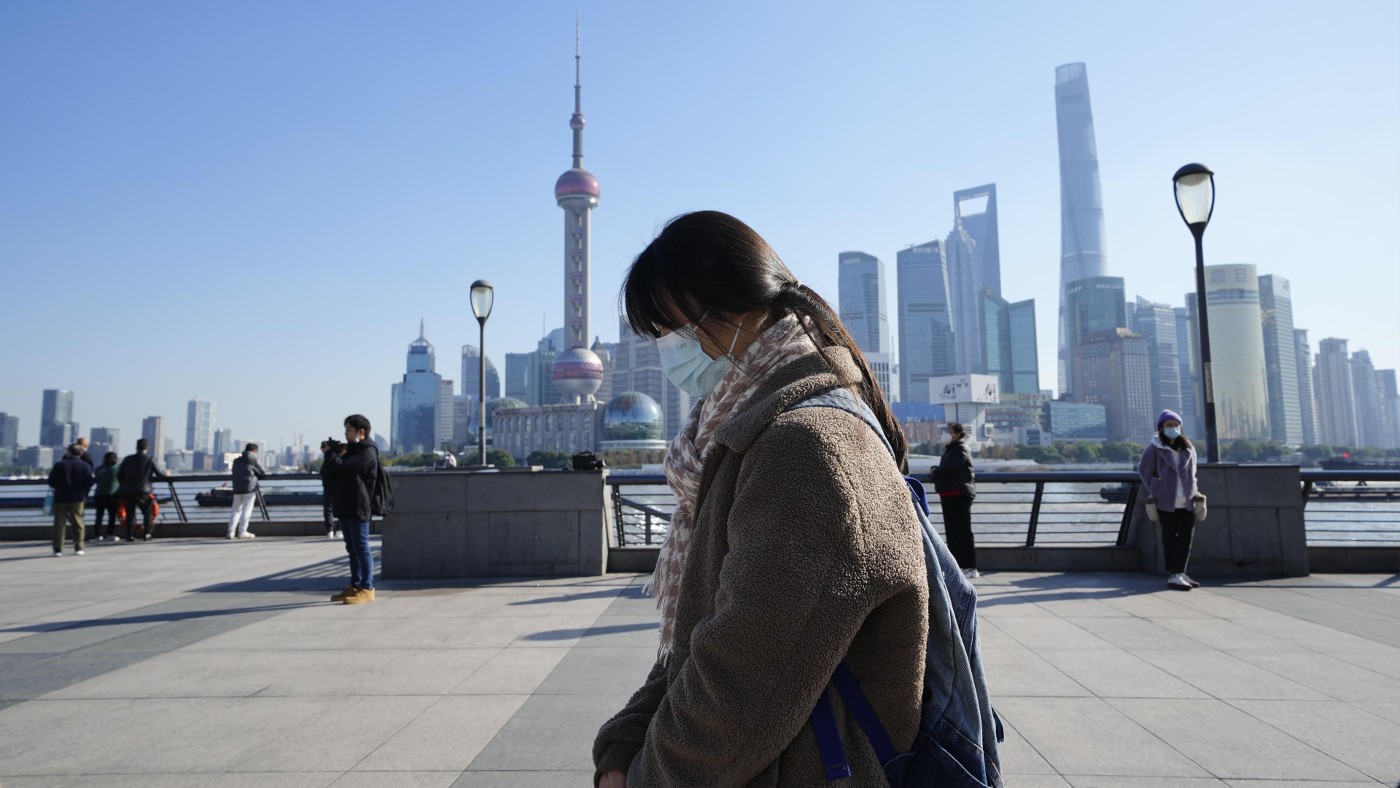Jiang Zemin: China says goodbye to ‘outstanding’ leader with ‘mixed legacy’
‘Sombre’ state memorial service marks ‘tentative moment of unity’ after recent protests

A free daily email with the biggest news stories of the day – and the best features from TheWeek.com
You are now subscribed
Your newsletter sign-up was successful
China has bid farewell to its former leader Jiang Zemin, who died last week at the age of 96.
President Xi Jinping delivered the eulogy at the state funeral ceremony in the Great Hall of the People in Beijing, praising the “extraordinary courage” of “Comrade Jiang”.
“Standing before a giant picture of Jiang and a row of white chrysanthemum wreaths”, Xi called on China to “turn grief into strength”, said CNN.
The Week
Escape your echo chamber. Get the facts behind the news, plus analysis from multiple perspectives.

Sign up for The Week's Free Newsletters
From our morning news briefing to a weekly Good News Newsletter, get the best of The Week delivered directly to your inbox.
From our morning news briefing to a weekly Good News Newsletter, get the best of The Week delivered directly to your inbox.
‘Sombre mood’
The memorial service was “sombre”, said Al Jazeera, and the occasion was marked across China. The country’s stock exchanges were suspended for three minutes while “air raid sirens rang out and people honked car horns”, said The Washington Post.
It was the “biggest event of its kind” since the funeral for Deng Xiaoping in 1997, said the South China Morning Post, but there were “notable absences”, such as former premier Zhu Rongji.
However, John Burns, emeritus professor of politics at the University of Hong Kong, told the Financial Times that the main message of the memorial was unity. It showed the party’s “determination to demonstrate that it is unified and that the leadership at the top is speaking with one voice”.
The sombre mood was a “stark contrast” to the “recent noisy scenes of protests as young demonstrators called for an end to Covid lockdowns and Xi’s repressive policies”, said CNN.
A free daily email with the biggest news stories of the day – and the best features from TheWeek.com
As the country “came to a standstill” it was indeed a “tentative moment of unity” after the protests “shook the nation last week”, said The Korea Times.
‘Long-tested Communist fighter’
Jiang was born in 1926 in the city of Yangzhou, in China’s eastern coastal province of Jiangsu, and joined the Communist Party at the age of 21 while he was still at college. By the 1980s, he had served as minister in charge of the electronics industry, and party chief in Shanghai.
He took power after the 1989 crackdown on the Tiananmen Square protests and oversaw “notable events” like China’s entry into the World Trade Organization, and the handover of Hong Kong from the British to the Chinese, said the BBC.
In a statement announcing his death last week, the Chinese Community Party described him as “an outstanding leader with high prestige” and “a long-tested Communist fighter”. He served as president of China between 1993 and 2003 and was the paramount leader from 1989 to 2002.
His passing “marks the end of an era for China”, said NPR, as China is now a country that is “far more repressive than when he left office”. For instance, wrote the broadcaster’s Frank Langfitt, who met Jiang when he was in power, Beijing “restricts speech far more now than it did back then”.
He has a “mixed legacy”, said Zhiqun Zhu, writing for The Diplomat, because “one can attribute many of China’s current achievements, as well as its problems” to his tenure.
He “kept the momentum of reform and opening up after the brief setback of the late 1980s” and “pushed for China’s entry into the World Trade Organization” through the “reform of the state-owned enterprises and the mending of fences with the United States”.
However, there was “rampant corruption”, particularly with the Chinese military’s involvement in businesses, and his administration focused on GDP growth rather than protecting the environment, leaving China as “the biggest polluter and largest greenhouse gas emitter”.
He was said to be a fan of Titanic, describing the blockbuster as “venture capitalism” and inviting his “comrades of the Politburo to see the movie not to propagate capitalism but to better understand our opposition”, reported The New York Times. This was seen as a symbol of his desire to build bridges with the West.
But Jiang had a “tainted record regarding human rights and freedom of speech”, wrote Zongyuan Zoe Liu for the Council on Foreign Relations, and “oversaw the crackdown of domestic dissidents, the banning of religious groups” as well as the “suppression of the press and internet”.
For these reasons, wrote Julia Lovell, professor of modern China at the University of London, for China File, it’s “hard to fit Jiang’s actual policies into current nostalgia for a fuzzily remembered past”.
Nevertheless, said The Guardian in its obituary, Jiang’s “more consensual approach to internal political life” now seems “very distant from the assertive and increasingly repressive rule” of the current leader, Xi.
He is survived by his wife, Wang Yeping, whom he married in 1949, and their sons, Mianheng and Miankang.
Chas Newkey-Burden has been part of The Week Digital team for more than a decade and a journalist for 25 years, starting out on the irreverent football weekly 90 Minutes, before moving to lifestyle magazines Loaded and Attitude. He was a columnist for The Big Issue and landed a world exclusive with David Beckham that became the weekly magazine’s bestselling issue. He now writes regularly for The Guardian, The Telegraph, The Independent, Metro, FourFourTwo and the i new site. He is also the author of a number of non-fiction books.